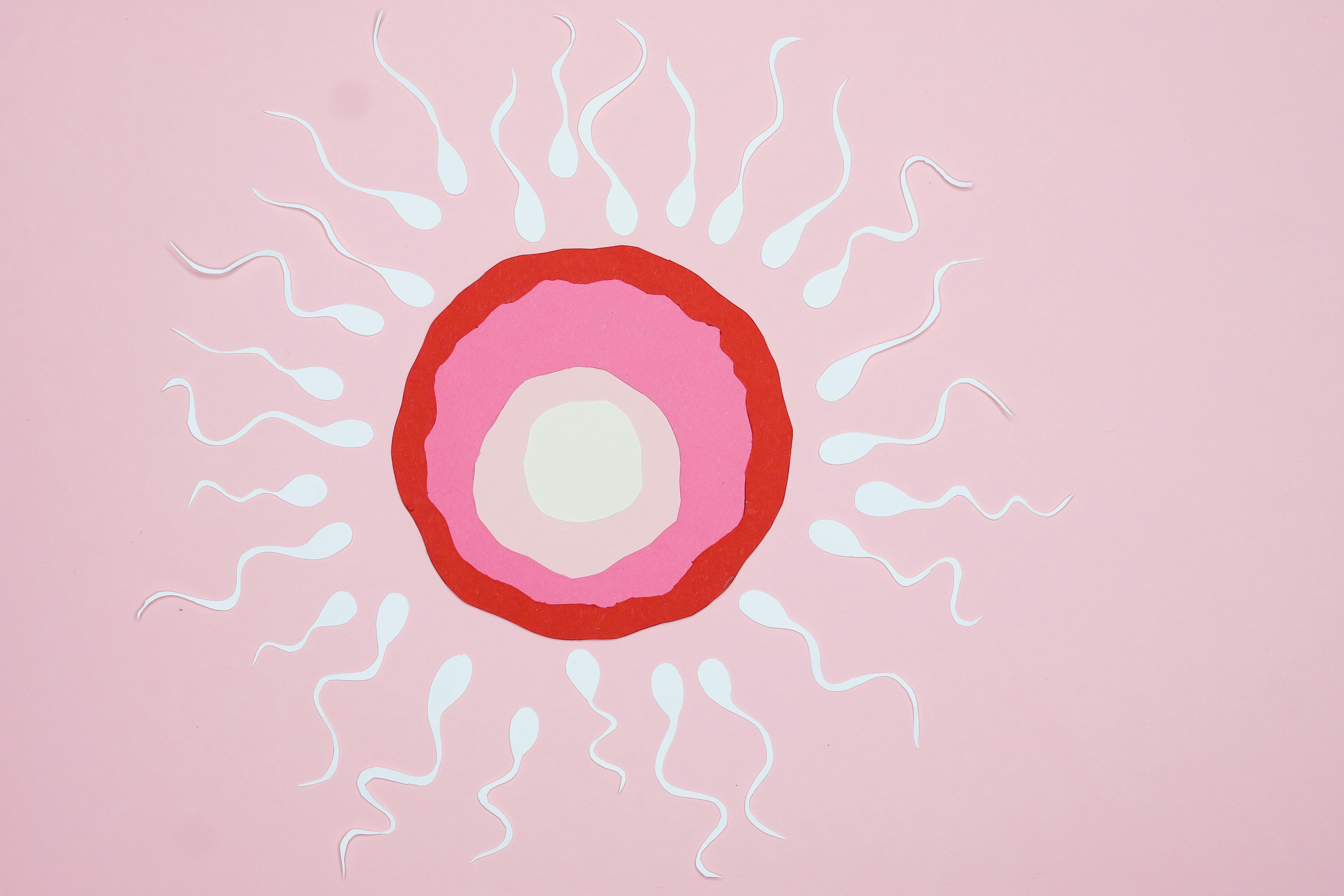If you're considering ICSI as part of your fertility treatment, you might be wondering whether this advanced technique could potentially harm your embryos. The good news is that decades of research and millions of successful births worldwide show that ICSI is a safe, effective procedure that doesn't compromise embryo quality when performed by skilled embryologists.
Understanding ICSI and Its Role in Modern Fertility Treatment
Intracytoplasmic Sperm Injection (ICSI) represents one of the most significant breakthroughs in reproductive medicine. During this procedure, a single sperm is carefully injected directly into an egg using specialized micromanipulation equipment. This technique bypasses natural fertilization barriers and has helped millions of couples achieve pregnancy when conventional IVF might not be successful.
The procedure was first developed in the 1990s to address severe male factor infertility, but its applications have expanded significantly. Today, ICSI is used in approximately 70% of all IVF cycles worldwide, making it one of the most commonly performed laboratory procedures in fertility treatment.
The Science Behind ICSI Safety
Extensive research has consistently demonstrated that ICSI does not harm embryo quality. A landmark study published in Human Reproduction followed over 12,000 ICSI cycles and found no significant difference in embryo development rates compared to conventional IVF when controlling for patient factors (Palermo et al., 2009).
The key factors that ensure ICSI safety include:
| Safety Factor | How It Protects Embryo Quality |
|---|---|
| Precise micromanipulation | Minimizes cellular damage through controlled injection technique |
| Optimal timing | Performed at the ideal maturation stage of the egg |
| Sterile environment | Prevents contamination that could affect development |
| Expert embryologists | Skilled professionals minimize handling time and trauma |
| Quality control protocols | Continuous monitoring ensures consistent results |
At Avida Fertility, our embryologists undergo extensive training and maintain the highest standards of laboratory practice. We use state-of-the-art equipment and follow strict protocols to ensure optimal outcomes for every patient.
Comparing ICSI vs Conventional IVF Outcomes
When examining embryo quality between ICSI and conventional IVF, research shows remarkably similar results. The choice between these techniques should be based on your specific fertility diagnosis rather than concerns about embryo quality.
| Outcome Measure | ICSI | Conventional IVF |
|---|---|---|
| Fertilization rate | 70-80% | 65-75% |
| Embryo development to blastocyst | 50-60% | 50-60% |
| Pregnancy rates per transfer | 40-50% (age dependent) | 40-50% (age dependent) |
| Birth defect rates | 2-3% (similar to natural conception) | 2-3% (similar to natural conception) |
These statistics demonstrate that ICSI doesn't compromise embryo quality when performed appropriately. The slight variations in success rates are typically related to the underlying fertility diagnosis rather than the technique itself.
When ICSI Is Recommended
Understanding when ICSI is recommended helps clarify why this technique is chosen and how it benefits embryo development rather than harming it. Your fertility specialist will recommend ICSI based on specific medical indications.
| Condition | Why ICSI Helps | Expected Benefit |
|---|---|---|
| Low sperm count | Overcomes quantity limitations | Improved fertilization rates |
| Poor sperm motility | Bypasses movement requirements | Direct sperm delivery to egg |
| Abnormal sperm morphology | Selects best available sperm | Enhanced fertilization potential |
| Previous fertilization failure | Ensures sperm-egg interaction | Higher success probability |
| High DNA fragmentation | Allows selection of optimal sperm | Better embryo development |
For patients with poor sperm morphology, ICSI becomes essential for achieving fertilization. The technique allows embryologists to select the most normal-appearing sperm for injection, potentially improving embryo quality compared to leaving fertilization to chance.
Debunking Common ICSI Myths
Several misconceptions about ICSI persist among patients, often causing unnecessary anxiety. Let's address the most common concerns with factual information.
Myth: ICSI damages the egg during injection
Reality: Modern micromanipulation techniques are incredibly precise. The injection needle is finer than a human hair, and skilled embryologists can perform the procedure with minimal cellular disruption. Studies show that egg survival rates after ICSI exceed 95%.
Myth: ICSI increases birth defects
Reality: Large-scale studies involving hundreds of thousands of ICSI births show no increased risk of major birth defects compared to natural conception. The slightly elevated risk sometimes reported is typically related to the underlying infertility condition rather than the ICSI procedure itself.
Myth: ICSI embryos develop more slowly
Reality: Research demonstrates that ICSI embryos follow the same developmental timeline as conventionally fertilized embryos. Any differences in development speed are usually related to egg or sperm quality rather than the fertilization method.
The Role of Laboratory Quality in ICSI Success
The quality of your fertility clinic's laboratory plays a crucial role in ICSI outcomes. At Avida Fertility, we understand that laboratory quality directly impacts ICSI success rates and embryo development.
Our laboratory features include:
| Laboratory Feature | Benefit for ICSI |
|---|---|
| Time-lapse incubation systems | Continuous monitoring without disturbance |
| Controlled air quality | Optimal environment for embryo development |
| Temperature and pH stability | Consistent conditions for cellular processes |
| Advanced micromanipulation equipment | Precise, gentle ICSI procedures |
| Quality control protocols | Consistent, reliable outcomes |
These advanced systems work together to create an environment where embryos can develop to their full potential, regardless of whether they were created through ICSI or conventional IVF.
ICSI Success Rates and Long-term Outcomes
When evaluating ICSI safety, it's important to consider both immediate success rates and long-term outcomes for children born through this technique. The data is overwhelmingly positive.
According to recent research published in Fertility and Sterility, children born through ICSI show normal physical and cognitive development when followed into adolescence (Bonduelle et al., 2020). This long-term data provides reassurance that ICSI doesn't compromise child health or development.
| Age Group | ICSI Success Rate | Key Factors |
|---|---|---|
| Under 35 | 50-60% per cycle | Optimal egg quality, good response to treatment |
| 35-37 | 40-50% per cycle | Good egg quality, may need PGT testing |
| 38-40 | 30-40% per cycle | Declining egg quality, PGT often recommended |
| Over 40 | 15-25% per cycle | May benefit from donor eggs |
These success rates demonstrate that ICSI remains highly effective across different age groups, with outcomes primarily influenced by maternal age and overall health rather than the ICSI procedure itself.
Special Considerations for ICSI
While ICSI is generally safe, certain situations require additional consideration to optimize outcomes and ensure the best possible embryo quality.
Genetic Screening
Some patients may benefit from genetic testing of embryos created through ICSI, particularly when there are concerns about sperm DNA integrity or family history of genetic conditions.
Sperm Selection Techniques
Advanced sperm selection methods can be combined with ICSI to further improve outcomes. These techniques help identify the healthiest sperm for injection, potentially enhancing embryo quality.
Timing Considerations
The timing of ICSI relative to egg maturation is crucial. Our embryologists carefully assess each egg's maturity level to ensure optimal timing for the procedure.
Patient Experience and Emotional Considerations
Understanding the ICSI process can help alleviate anxiety about potential embryo harm. Many patients worry unnecessarily about this safe, routine procedure.
During your ICSI cycle, you can expect:
| Timeline | What Happens | Your Experience |
|---|---|---|
| Egg retrieval day | Eggs collected and assessed for maturity | Brief procedure under sedation |
| Same day | ICSI performed on mature eggs | No additional procedures for you |
| Day 1 | Fertilization assessment | Update on fertilization success |
| Days 3-5 | Embryo development monitoring | Regular updates on progress |
| Day 5-6 | Embryo transfer or freezing | Transfer procedure or planning for future cycle |
Throughout this process, our team provides regular updates and support, ensuring you feel informed and confident about your treatment.
Choosing the Right Clinic for ICSI
The expertise of your fertility clinic significantly impacts ICSI outcomes. When selecting a clinic, consider factors that directly influence embryo quality and treatment success.
Key factors to evaluate include:
| Clinic Factor | Why It Matters for ICSI |
|---|---|
| Embryologist experience | Skilled technique reduces embryo trauma |
| Laboratory accreditation | Ensures quality standards and protocols |
| Success rate transparency | Demonstrates consistent, reliable outcomes |
| Advanced equipment | Modern technology improves precision |
| Comprehensive support | Addresses all aspects of your care |
At Avida Fertility, we combine cutting-edge technology with compassionate care to provide the best possible ICSI outcomes. Our experienced team understands that choosing fertility treatment is a significant decision, and we're here to support you every step of the way.
The Future of ICSI Technology
Continuous advances in ICSI technology further enhance safety and effectiveness. New developments focus on improving sperm selection, reducing handling time, and optimizing laboratory conditions.
Recent innovations include artificial intelligence-assisted sperm selection, which helps identify the healthiest sperm for injection with greater precision than ever before. These advances continue to improve outcomes while maintaining the excellent safety profile that ICSI has demonstrated over decades of use.
Frequently Asked Questions About ICSI and Embryo Quality
Does ICSI increase the risk of multiple pregnancies?
No, ICSI itself doesn't increase multiple pregnancy risk. The risk depends on the number of embryos transferred, not the fertilization method used.
Can ICSI be used with frozen eggs?
Yes, ICSI works excellently with frozen eggs and is often the preferred method due to potential changes in the egg's outer layer during the freezing process.
How long do ICSI embryos take to develop?
ICSI embryos follow the same developmental timeline as conventionally fertilized embryos, typically reaching blastocyst stage by day 5-6.
Is ICSI more expensive than regular IVF?
ICSI typically adds a modest cost to IVF treatment, but the investment is worthwhile when medically indicated for achieving fertilization.
Can ICSI help with unexplained infertility?
In some cases of unexplained infertility, ICSI may be recommended, especially if previous IVF cycles had poor fertilization rates.
Making an Informed Decision About ICSI
The evidence is clear: ICSI does not harm embryo quality when performed by experienced professionals in a quality laboratory setting. This technique has helped millions of families worldwide achieve their dreams of parenthood safely and effectively.
Your fertility specialist will recommend ICSI based on your specific medical situation, not as a routine procedure. When ICSI is indicated, you can feel confident that this well-established technique will give your embryos the best chance for healthy development.
The key to successful ICSI lies in choosing a clinic with experienced embryologists, advanced laboratory facilities, and a commitment to individualized care. At Avida Fertility, we combine all these elements to provide you with the highest quality treatment and the best possible outcomes.
Remember that every fertility journey is unique, and what matters most is finding the right treatment approach for your specific situation. ICSI has an excellent safety record and continues to help couples achieve healthy pregnancies every day.
Considering IVF treatment? Avida Fertility is here to support and guide you on your fertility journey. Reach out today for a personalized consultation and take the first step towards building your family with confidence.






.png)







.svg)
.svg)
